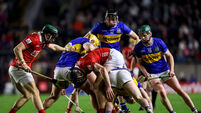Where women rarely go...
THE recession has been tough for everyone. Jobs throughout Europe have been disappearing. If it’s been hard on women, it’s been even worse for men. A recent study from the European Union has found that of the five million jobs shed between 2008 and 2010, four million had been held by men, and just one million by women. But that doesn’t mean that the feminist movement has finally been victorious. It’s just that the jobs worst hit are those in construction and manufacture. So, though women in female-orientated jobs are relatively secure, women preferring a more macho occupation have it worst of all.
At the height of the boom, in 1995, there were 131 women employed as apprentices. Today, FÁS reports there are just 58. That doesn’t surprise Chris Lundy, of the Association of Electrical Contractors of Ireland.
















